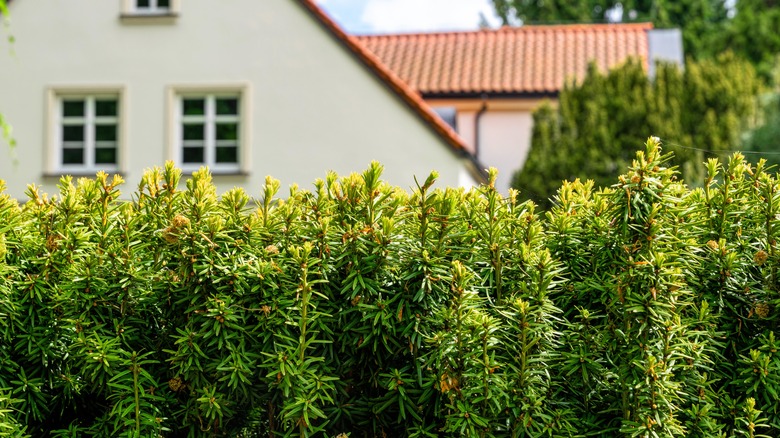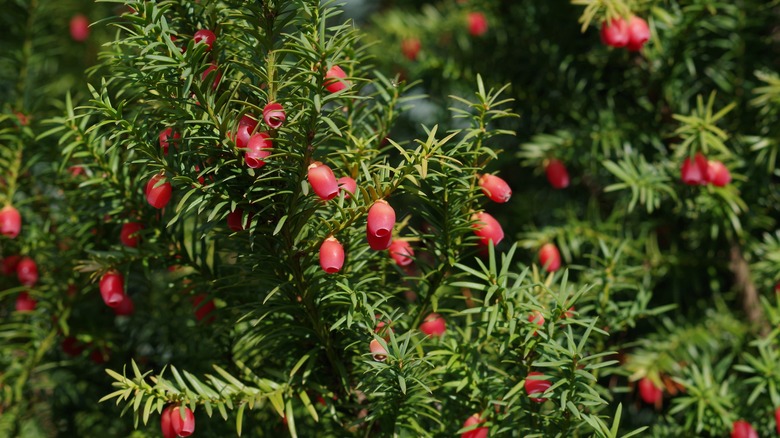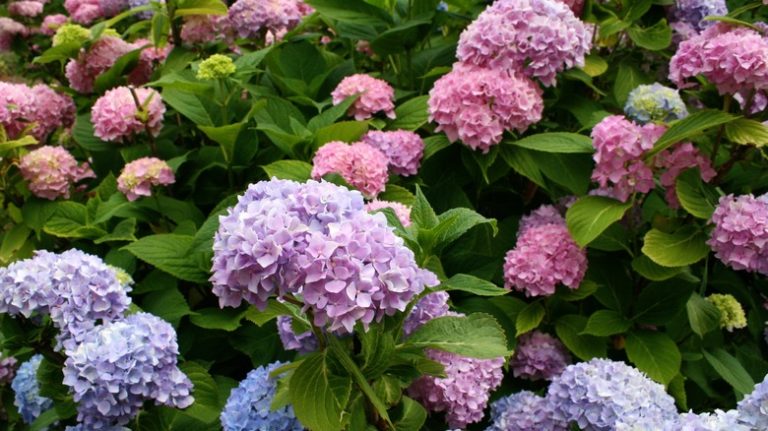If you are looking to plant a tree in your yard, you might first think of popular favorites like oak, maple, redbud, or sycamore. However, there are many interesting tree selections beyond those commonly planted, like the yew tree. Yew trees might not boast vibrant flowers or changing autumn colors, but they quietly offer two valuable benefits for modern homeowners including enhanced privacy and improved air quality.
The yew tree is a type of evergreen that can reach up to 65 feet tall. Some are believed to live for more than 2,000 years. Their foliage is dense dark green and consists of needle-like leaves that persist year-round, creating a thick and vibrant foliage. Native to Europe, North Africa, and parts of Asia, these trees often grace shady forests, churchyards, and even historical gardens. Interestingly, these trees have the ability to enhance privacy and improve air quality, which can be a practical and valuable addition to your property.
Privacy benefits from yew trees

Many people regard their yard as their own personal glimpse into nature and with any luck, a place to enjoy some tranquility in your own secluded space. Yew trees make this possible thanks to their thick, year-round foliage. Unlike deciduous trees that lose their leaves in winter, yews maintain their dense green leaves, offering uninterrupted privacy throughout the year. This makes them ideal for creating hedges that block sightlines from neighboring properties or busy streets.
In addition, various types of yew trees can provide for different privacy needs since yew trees have a range of growth habits. The English yew grows tall and stately which is ideal for creating towering hedges that block unwanted views from neighbors or roads. However, if space is limited, the Japanese yew is compact and one evergreen shrub that can make your landscaping look great all year. It can form a dense, low-growing shrub that can be perfect as a border for flower beds or to define a walkway.
Yews have natural air filters

Beyond providing privacy for backyards, yew trees act as natural air purifiers. Studies have shown them to be particularly effective at capturing dust and harmful particulate matter. This is because their small, needle-like leaves have a rough and porous texture which enables them to trap pollutants. These particles are eventually washed away by rain. This process results in cleaner, healthier air for you and your family.
Yew trees thrive with minimal care. Plant them in well-drained soil with sun or partial shade. Water regularly while young, then only occasionally when established unless there has been no rain for a while. Young trees benefit from annual spring fertilizer, but mature ones often don’t need it. Prune hedges in July and September.
Though yew trees offer numerous benefits, it is important to know that they are on the list of poisonous plants that look beautiful in a garden. Their seeds, bark, and leaves are poisonous if ingested. Wild animals like birds and squirrels tend to stay away from the dangerous parts and only feed on the seed coverings known as arils, which are not poisonous. Consequently, pets need to be protected, especially if you have an energetic puppy or a dog or cat that chews on shrubs in the yard. Of course, very small children need to be supervised around yew trees.


